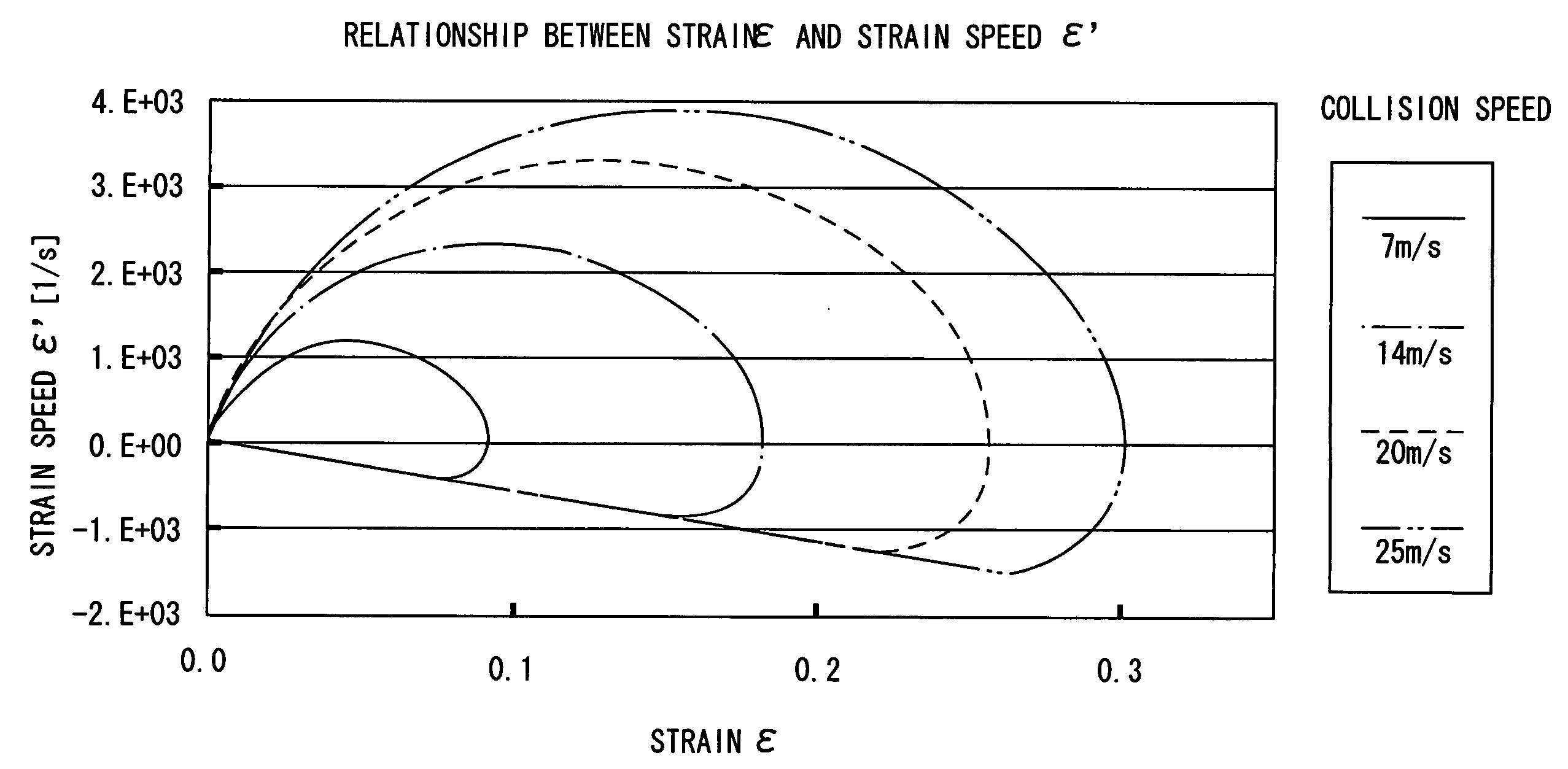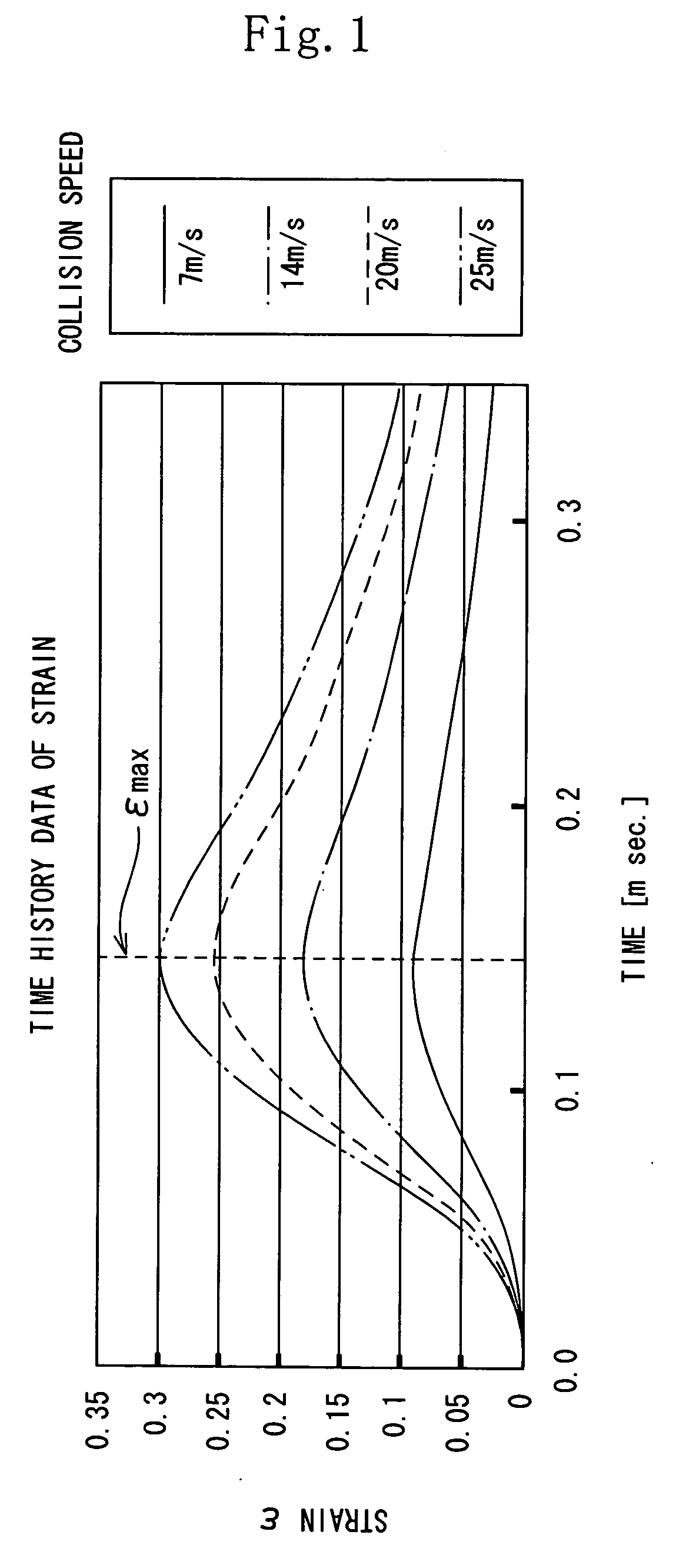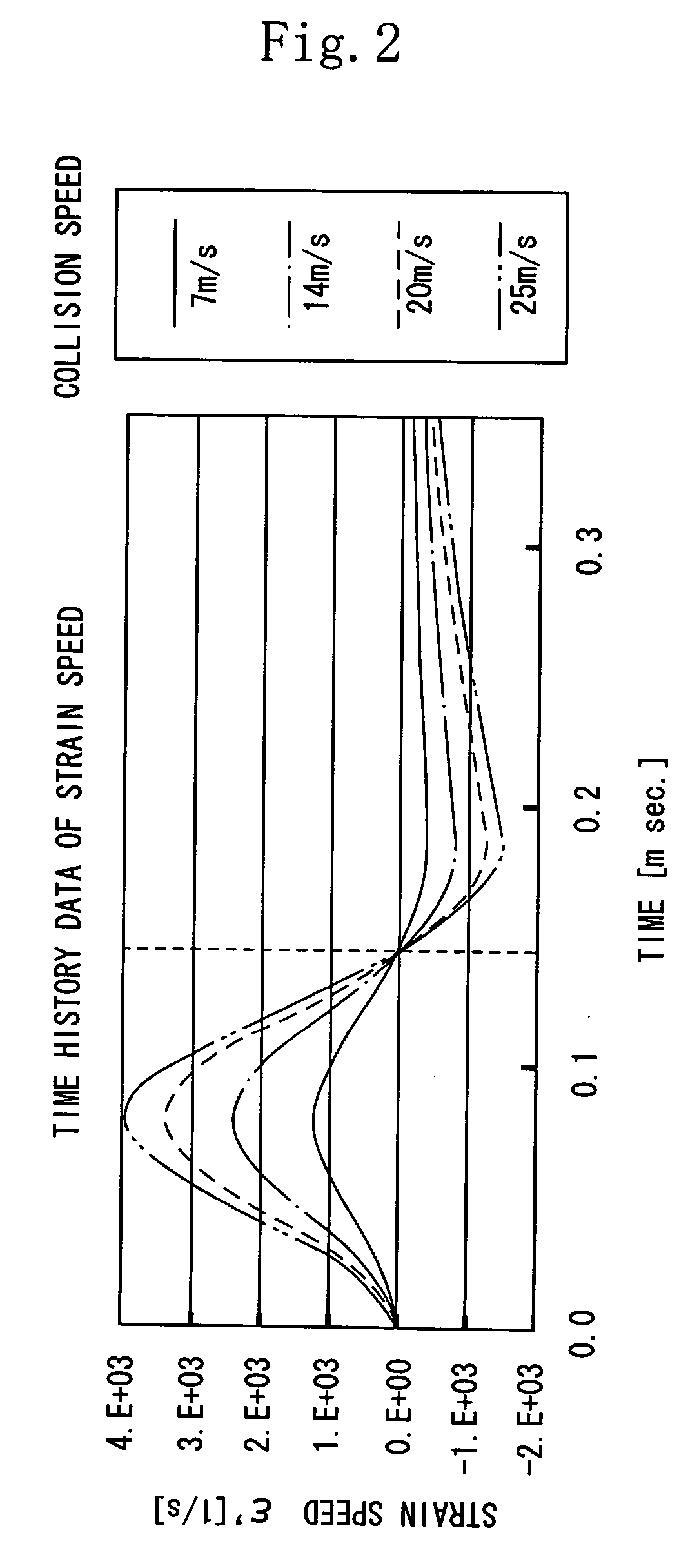Simulation method for estimating performance of product made of viscoelastic material
a viscoelastic material and performance estimation technology, applied in the direction of simulation of multiple variables, instruments, force/torque/work measurement apparatus, etc., can solve the problem of large deformation amount not being imparted to the specimen, the inability of the tension testing machine to achieve accurate simulation, and the inability to measure the properties of the viscoelastic material. to achieve the effect of high accuracy
- Summary
- Abstract
- Description
- Claims
- Application Information
AI Technical Summary
Benefits of technology
Problems solved by technology
Method used
Image
Examples
experiment example 1
A simulation was conducted by using the time history data of each of the strain, strain speed, and stress of a specimen, containing urethane rubber as its main component, measured by the split Hopkinson rod testing machine and using a viscoelastic model similar to that of the first mode of the present invention in consideration of the viscous drag. The relationship among the strain, the strain speed, and the modulus of longitudinal elasticity was inputted to the product model used in the simulation method of the first mode of the present invention in consideration of a change of the modulus of longitudinal elasticity which occurs in dependence on a variation of the strain and the strain speed. Further the viscous drag was considered by differentiating the value of the viscous drag between the case where the stress generated in the viscoelastic material is in the strain increase state and the case where the stress generated therein is in the strain decrease state. A software used wa...
experiment example 2
With reference to the loss coefficient of a specimen composed of a viscoelastic material containing urethane rubber as its main component measured by the split Hopkinson rod testing machine, a simulation was conducted on the conventional viscoelastic material whose viscous drag does not change.
A phase angle δ estimated by the simulation of the experiment example 2 is shown in table 1.
By performing an analysis based on the finite element method, an aluminum hollow rod model having a weight of 200 g (equal to weight of golf club head) collided with a golf ball made of the material containing the urethane rubber as its main component at speeds of 35 m / s, 40 m / s, and 45 m / s to simulate the performance of the golf ball and the deformation state of the material. By performing an analysis based on the finite element method, the restitution coefficient of the golf ball was computed. Table 2 shown below indicates the restitution coefficient of the golf ball, made of the material contain...
experiment 2
(Experiment 2)
Similarly to the experiment 1, the value of the phase angle δ at each of the four collision speeds was computed for a material containing urethane rubber as its main component. The results are shown in table 3 below.
TABLE 3Collision speed of hitting rod (m / s)7142025Phase angle δ (rad) in0.390.631.021.11experimental resultPhase angle δ (rad) of0.360.580.980.99experiment example 3Phase angle δ (rad) of0.450.771.060.99experiment example 4
PUM
 Login to View More
Login to View More Abstract
Description
Claims
Application Information
 Login to View More
Login to View More - R&D
- Intellectual Property
- Life Sciences
- Materials
- Tech Scout
- Unparalleled Data Quality
- Higher Quality Content
- 60% Fewer Hallucinations
Browse by: Latest US Patents, China's latest patents, Technical Efficacy Thesaurus, Application Domain, Technology Topic, Popular Technical Reports.
© 2025 PatSnap. All rights reserved.Legal|Privacy policy|Modern Slavery Act Transparency Statement|Sitemap|About US| Contact US: help@patsnap.com



